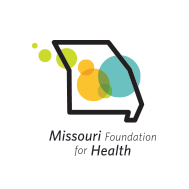Reducing Tobacco
Use in Missouri



In 2002, Missouri ranked 3rd for prevalence of tobacco in the U.S.
Two-thirds of our youth had used tobacco before graduating high school, and only two communities in our state had smoke-free laws.
Missouri Foundation for Health took the long view.
Over nine years, Missouri Foundation for Health pursued a multifaceted approach to reducing tobacco use in our region, especially among young people. We worked with partners and leaders to educate Missourians about the health risks of smoking, increase the accessibility of smoking cessation programs, and collaborated with local agencies on smoke-free laws.
Reduced smoking helps us all breathe easier.
By 2012, Missouri had fallen from 3rd to 11th in the nation in tobacco use. More people had quit smoking and fewer young people had started. Twenty-five communities had smoke-free policies, covering more than 40% of the state's population.
Go big, go long.
Improving lifestyle health behaviors requires sustained focus and investment and an approach that incorporates partners, collaboration, policy research, and education.














